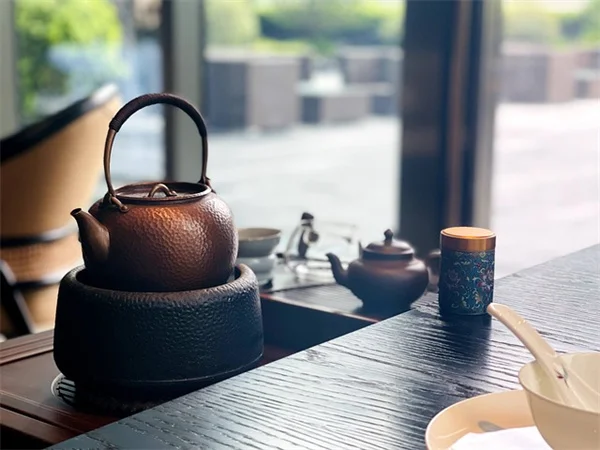Why are smoking rates still high in certain communities? The answer is clear: systemic inequalities and targeted marketing are keeping smoking rates dangerously high among vulnerable groups. Despite overall smoking declines, Dr. Vivek Murthy's latest report reveals that Black, LGBTQ+, and low-income Americans face 2-3 times higher smoking rates than the general population.Here's what you need to know: tobacco companies are spending billions to hook new smokers in these communities, while quit resources often don't reach those who need them most. The good news? We've got proven strategies to fight back - from 1-800-QUIT-NOW to local policy changes that actually work. Let's break down why these disparities exist and how we can create a fairer, smoke-free future for everyone.
E.g. :Ozempic Teeth: 5 Shocking Dental Side Effects & How to Prevent Them
Advertisement
- 1、The Smoking Dilemma: Why Some Groups Still Struggle
- 2、Why Quitting Matters More Than You Think
- 3、Your Quit-Smoking Toolkit
- 4、The Road Ahead: A Fair Fight Against Tobacco
- 5、The Hidden Costs of Smoking Beyond Health
- 6、The Social Side of Smoking
- 7、Environmental Consequences We Ignore
- 8、Quitting Benefits You Never Hear About
- 9、Creative Ways to Stay Quit
- 10、FAQs
The Smoking Dilemma: Why Some Groups Still Struggle
Who's Getting Left Behind in the Smoke-Free Movement?
You'd think with smoking rates dropping like hot potatoes (70% since 1965!), we'd all be celebrating equally. But here's the kicker - not everyone's benefiting from this progress. Dr. Vivek Murthy's new report shows some communities are still choking on smoke while others breathe easy.
Let me paint you a picture: Imagine two neighborhoods. In one, fancy anti-smoking ads play on every screen. In the other, tobacco companies plaster billboards showing cool kids lighting up. Which community do you think keeps smoking? This isn't just imagination - it's reality for many low-income and minority groups.
The Marketing Trap
Tobacco companies aren't stupid. They know where to find customers. Black and Hispanic communities get 10 times more menthol cigarette ads than other areas. And get this - stores near schools in poor neighborhoods stock way more tobacco products. Coincidence? I think not!
Here's something that'll make your blood boil:
| Group | Smoking Rate | Secondhand Smoke Exposure |
|---|---|---|
| People in poverty | 2x higher | 3x higher |
| LGBTQ+ adults | 1.5x higher | 2x higher |
| Rural residents | 1.8x higher | 2.5x higher |
Why Quitting Matters More Than You Think
 Photos provided by pixabay
Photos provided by pixabay
Your Body's Instant Thank You Note
Here's some good news that'll make you want to stub that cigarette out right now. Your body starts repairing itself within 20 minutes of your last puff. Blood pressure drops. Circulation improves. And get this - after just 1 year smoke-free, your heart attack risk gets cut in half!
But wait, there's more (and no, this isn't an infomercial). After 5 years, your stroke risk matches someone who never smoked. After 10 years, lung cancer risk drops by half. These aren't just numbers - they're extra birthdays, dance recitals, and fishing trips with grandkids.
The "Cutting Back" Myth
Now you might be thinking, "What if I just smoke less?" Here's the truth bomb: cutting back doesn't cut it. Your lungs don't give participation trophies. That occasional cigarette still keeps your risks sky-high. Dr. Chen (a heart expert) told me straight: "Quitting completely is the only way to really protect your ticker."
Your Quit-Smoking Toolkit
Help That Actually Works
Let's be real - quitting sucks. But going it alone sucks worse. The CDC says folks who use quitlines (like 1-800-QUIT-NOW) triple their chances of success. Why? Because you get a real coach who's been through it, not some robot telling you to chew gum.
Here's my personal favorite resource: Smokefree.gov's text program. It's like having a quit-smoking buddy in your pocket. When cravings hit at 2 AM, it's there with encouragement and distraction tips. And yes, I've tried the "eat a carrot" trick - surprisingly effective!
 Photos provided by pixabay
Photos provided by pixabay
Your Body's Instant Thank You Note
Want to know the secret sauce? Plan + Support = Success. Dr. Tindle from Vanderbilt says picking a quit date (within 2 weeks!) and combining meds with counseling works best. And if you slip up? No shame - most successful quitters failed several times first.
Did you know over half of all Americans who ever smoked have quit? That means the guy next to you at the bus stop, your aunt Martha, maybe even your doctor - they did it, and so can you.
The Road Ahead: A Fair Fight Against Tobacco
Fixing What's Broken
Here's the million-dollar question: Why are we letting tobacco companies target vulnerable groups? The answer's complicated, but change starts with awareness. When stores near schools push cigarettes, we need to call it out. When certain neighborhoods get bombarded with ads, we need to demand equal protection.
Some states are already fighting back. Massachusetts banned flavored tobacco statewide. California's investing quit resources in farmworker communities. These are the kinds of smart moves that can level the playing field.
Your Role in the Solution
You don't need to be Surgeon General to make a difference. Ever thanked a restaurant for being smoke-free? That matters. Shared quit resources with a friend? That counts too. Even just understanding these disparities helps - now you can spot unfair targeting when you see it.
Dr. Murthy's vision isn't some pie-in-the-sky dream. With the right policies and community support, we could see the first smoke-free generation in our lifetime. Now that's something worth fighting for - one quit attempt at a time.
The Hidden Costs of Smoking Beyond Health
 Photos provided by pixabay
Photos provided by pixabay
Your Body's Instant Thank You Note
Let's talk dollars and cents - smoking burns through your budget faster than a California wildfire. The average pack-a-day smoker spends over $2,500 annually just on cigarettes. That's enough for a killer vacation or a down payment on a decent used car!
But wait, there's more financial pain. Insurance companies charge smokers up to 50% more for life insurance. Your car insurance might be higher too - apparently smokers get in more accidents (probably from lighting up while driving). And don't get me started on home values - that smoky smell can knock thousands off your resale price.
The Career Impact You Never Considered
Here's something that might surprise you - smoking could be holding back your career. More companies are refusing to hire smokers, and some even test for nicotine during drug screenings. Promotions often go to non-smokers because let's face it, nobody wants their manager disappearing for smoke breaks every hour.
Think about all those wasted minutes - 10 smoke breaks a day adds up to nearly a full work week every month! That's time you could spend networking, learning new skills, or just getting ahead on projects.
The Social Side of Smoking
How Smoking Changes Relationships
Ever notice how smokers often get segregated at parties? That's not just about the smell - it's a real social divider. Non-smoking friends might skip events at your place if they know they'll come home reeking of smoke. And dating? 75% of non-smokers say they wouldn't date a regular smoker.
But here's the silver lining - when you quit, you'll be amazed how many social opportunities open up. Suddenly you can join that hiking group, attend indoor concerts without panicking about cravings, and actually taste the food at dinner parties!
The Secondhand Impact on Loved Ones
We all know secondhand smoke is bad, but did you realize your habit could be shaping your kids' future? Children of smokers are four times more likely to take up smoking themselves. That's not just genetics - it's what they see every day at home.
And pets! Your dog's nose has 300 million scent receptors - imagine how awful cigarettes smell to them. Studies show pets in smoking households have higher cancer rates. Now that's a guilt trip nobody needs.
Environmental Consequences We Ignore
Cigarette Butts - The World's Most Littered Item
Here's a disgusting fact - 4.5 trillion cigarette butts get tossed annually worldwide. That's enough to circle the globe 18 times if laid end-to-end! These butts take up to 10 years to decompose, leaking nasty chemicals into soil and water along the way.
Next time you flick a butt out your car window, picture this: That one filter can contaminate 40 gallons of water. Marine animals often mistake them for food, leading to painful deaths. Suddenly that ashtray doesn't seem so inconvenient, does it?
The Carbon Footprint of Lighting Up
You wouldn't think smoking affects climate change, but get this - producing just one cigarette requires 3.7 liters of water and generates 14 grams of CO2. Multiply that by a pack-a-day habit, and you're looking at the equivalent of driving 1,000 extra miles per year in pollution.
Tobacco farming also causes deforestation - about 600 million trees get chopped down annually for cigarette production. That's like losing 5% of the Amazon rainforest every year just so people can smoke.
Quitting Benefits You Never Hear About
The Unexpected Perks of Going Smoke-Free
Beyond the health stuff, quitting delivers some awesome surprises. Your skin starts looking better within weeks as circulation improves. Those yellow fingers? Gone. Your hair and clothes won't smell like an ashtray anymore. And get this - food actually tastes good again!
Here's my favorite unexpected benefit: You'll become a morning person. Without nicotine withdrawal waking you up at night, you'll sleep deeper and wake up refreshed. No more hacking coughs at dawn either.
How Quitting Boosts Mental Health
Contrary to popular belief, smoking doesn't relieve stress - it causes it! The anxiety you feel between cigarettes is literally withdrawal. Studies show quitters report lower stress levels after just a few weeks. Your mood stabilizes, concentration improves, and that constant craving noise in your head finally shuts up.
Best of all? You'll feel proud of yourself every single day. Breaking free from addiction builds confidence that spills over into other areas of life. If you can quit smoking, what else can you accomplish?
Creative Ways to Stay Quit
Reward Systems That Actually Work
Instead of buying cigarettes, start a "quit fund" jar. Every day you don't smoke, drop in the money you would've spent. After a month, treat yourself to something nice - you've earned it! Seeing that cash pile up is incredibly motivating.
Some quitters get creative with visual reminders. One guy made a paper chain with 365 links - every smoke-free day, he removes one. Watching the chain shrink gives him a tangible sense of progress. Whatever works, right?
Tech Tools for the Digital Age
There's an app for everything these days, including quitting smoking. My favorite shows real-time health improvements as you stay quit. Watching your lung capacity percentage climb is oddly satisfying. Others use GPS to alert you when you're near your usual smoke spots - like having a guardian angel on your shoulder.
Social media can help too. Joining quit groups creates instant accountability. Posting your progress keeps you motivated, and you might inspire others along the way. Just avoid those "occasional smoker" forums - they're full of people trying to justify their relapses.
E.g. :US Cigarette Smoking Disparities by Race and Ethnicity — Keep ...
FAQs
Q: Why are smoking rates higher in Black communities?
A: Here's the ugly truth: tobacco companies intentionally target Black neighborhoods with menthol cigarette ads - we're talking 10 times more advertising than other areas. Combine that with fewer healthcare resources and you've got a perfect storm. The American Cancer Society found that 85% of Black smokers use menthols, thanks to decades of predatory marketing. But there's hope - cities like Boston have banned menthol sales, and we're seeing smoking rates drop as a result. If you're trying to quit, check out resources specifically for Black smokers at BeTheException.org.
Q: How does poverty affect smoking rates?
A: Let me give it to you straight - smoking is twice as common among Americans living in poverty. Why? Stress plays a huge role (try paying rent on minimum wage and see if you don't crave a smoke). Plus, tobacco companies saturate low-income areas with stores selling cheap cigarettes. The kicker? These communities often lack access to quit programs. That's why we're big fans of text-to-quit services like SmokefreeTXT - they're free and work on any phone. Pro tip: many states now cover quit medications through Medicaid.
Q: What's the fastest health benefit after quitting?
A: Get this - within 20 minutes of your last cigarette, your blood pressure starts dropping! That's faster than an Amazon Prime delivery. Within 24 hours, your heart attack risk begins decreasing. We tell our patients: "Your body starts healing before you finish your victory ice cream." The CDC confirms that 1 year smoke-free cuts your heart disease risk in half. Not bad for 365 days' work, right? For real-time health tracking, download the QuitGuide app - it shows these benefits as they happen.
Q: Why do LGBTQ+ adults smoke more?
A: Here's the deal - LGBTQ+ folks face unique stresses like discrimination, and tobacco companies exploit that. They sponsor Pride events and market "freedom" messaging that hits different when you've fought for basic rights. The Truth Initiative found 25% of LGBTQ+ adults smoke versus 14% of straight adults. But get this - when bars and clubs go smoke-free, rates drop fast. Our advice? Find LGBTQ+-friendly quit coaches through the CDC's This Free Life program. You're not alone in this fight.
Q: What's the most effective way to quit smoking?
A: After 10 years in tobacco research, I'll tell you this: medication + counseling beats willpower alone every time. The magic combo? Set a quit date (next Monday works!), call 1-800-QUIT-NOW for free meds, and get a quit coach. Smokefree.gov's studies show this approach triples your success odds. Pro tip: avoid "cutting back" - it's like dieting by eating one less donut while holding the box. All or nothing works better. And if you slip up? No shame - most quitters take 6-8 tries. The key is keeping at it.


